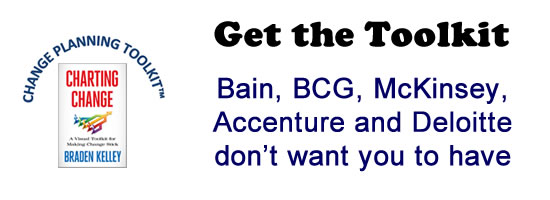To Succeed You Must Hit Rock Bottom First
None of us ask for life’s greatest challenges, but that doesn’t mean we can’t benefit from them.

I’m going to ask you to recollect what you consider to be your greatest challenge to date. Not one that simply stretched your mind but one that drained your soul. Got it? Good.
If it’s not one you’re going through right now then try, as best you can, to take a moment and put yourself back in the midst of it. Not pleasant, is it? The sorts of challenges I’m talking about rock you to your very core. They test all of your emotional and physical endurance.
Somewhere in the midst of that struggle there is or was a lesson you needed to learn–a lesson about yourself.
So, what’s the connection between success and hitting rock bottom? Hitting rock bottom, whether it’s a failed business, a failed relationship, or a major illness, is when we learn life’s greatest and most important lessons on which to build our success. I’ve seen that so often that I’ve become convinced that these lessons represent life’s greatest opportunities to grow, learn, and innovate ourselves.
When I think of or talk to people who are considered very successful the depth and the magnitude of these lessons goes well beyond the price anyone would be willing to pay for success. Nobody in their right mind would sign up for the pain, heartache, and despair that often accompanies these lessons. Good thing, because if that was the way it worked I’m convinced success would be infinitely rarer than it is.
But the key here is actually taking the time to recognize that there is a lesson to be learned. In past columns I’ve written about the lessons adversity taught Tony Robbins and Oprah Winfrey. In the same column I wrote about Cheryl Hunter’s gut wrenching story of how as a teenager traveling in Europe she was abducted, beaten, sexually assaulted, and left for dead. Now she helps teach others how to overcome adversity. The fact is that you will not find a single success story, one that you can admire and respect, that doesn’t include life-changing adversity.
Still, when you’re in the thick of it, it’s not easy to see the lessons through the haze of your pain. So, here are seven steps that will hopefully help you keep moving forward the next time you find yourself hitting what seems to be rock bottom.
1) It Could Be Worse
Few things sound more cliche when you reach what feels like rock bottom, but there is incredible power in realizing that whatever it is you’re dealing with you may have had to deal with something much worse. According to Sheryl Sandberg, Facebook’s COO and author of Option B: Facing Adversity, Building Resilience, and Finding Joy, about the sudden death of her husband, “it’s very counter-intuitive to try to recover from tragedy by thinking about an even worse tragedy, but it’s a very powerful lesson because it gets us to gratitude for what is still good in our lives.”
2) You Are Much More Resilient Than You Thought
When the world seems to have thrown the absolute worst it has at you this is one of the most important things to keep in mind. One thing that we can all be assured of is that the longer we live the more often we will have to reach into that well of resilience. Of course, it’s easy to say that resilience is a choice, but what prevents us from making that choice is most often the fear that doing so somehow minimizes the loss. We need to grieve, it acknowledges the magnitude of a loss. But grief and resilience are not a zero sum proposition. They can coexist if we allow them to.
According to the American Psychological Association resilience isn’t about overcoming grief, instead it’s about adapting “in the face of adversity, trauma, tragedy, threats or significant sources of stress.” I define it in even simpler terms. Resilience is the ability to grieve without turning your grief into regret.
3) Don’t Sidestep The Pain
The best piece of advice I ever received about dealing with adversity came from a friend who had seen more than her fair share of adversity. I was going through a difficult period and complaining mostly about how I was unable to overcome the pain of the situation I was in. Not only did I feel as though I’d failed at the situation but I was compounding it by feeling like a failure for not being able to stop the pain. What she told me has stuck with me. Very simply it was, don’t try to run away from the pain. Instead sit in it and ask, “What is this experience and the pain trying to teach me?”
4) Don’t Judge
Nowhere are we quicker to pass judgment than when it comes to judging ourselves. I’ve especially noticed this among entrepreneurs who are ruthless at blaming themselves when something goes horribly wrong. You may very well have made a bad decisions, hired the wrong person, blown the negotiation, dropped the ball, not followed your instincts, and, as if that’s not enough, now you beat yourself bloody as a result. It makes little sense.
If you knew someone who was the single most important person in your life or your company and they made a horrible mistake I doubt that your first response would be to start flogging them for it. There’s always time to ask what you could have done differently, it’s called learning. However, the less you judge yourself the more likely you will be to take the next risk, and the one after that. We don’t stop moving forward because we’ve faltered. We stop moving forward because were afraid. Withhold the judgment, learn the lesson, and, if success is your objective, expect to have to repeat that same cycle many times over again.
5) Keep Reminding Yourself Of What You’ve Learned
Lessons aren’t of much use if we keep repeating our past patterns. Life isn’t an academic test where the simple knowledge of how to solve a problem is enough to get the grade. It’s about putting into practice what you’ve learned. One of the best ways to do that is by writing a long letter to yourself that captures exactly what you were feeling and what you learned from your adversity. When you find yourself falling into a past pattern read that letter again. One of the most amazing things about adversity is how often we forget what it felt like. In some ways that’s a good thing, otherwise we might never take another risk. But when we recognize the patterns that created the problem emerging once again it’s a good idea to remind ourselves of what it felt like and what we learned because of it the last time around.
6) Give Yourself Credit
When you were in grade school you’d likely jump through flaming hoops to get praise and a gold star. Well, learning and growing only gets harder as you get older. And, in case you hadn’t noticed, often there’s nobody around handing out gold stars. Acknowledge your own efforts and resilience. Celebrate the lessons you learned. After all, you earned them.
7) Let It Go
I’m not going to suggest that you forget those times that you hit rock bottom. They are powerful reminders of what you have achieved and invaluable parts of who you are. They have shaped you and strengthened you. That isn’t the “it” you need to let go of. What you need to cast off is the very human desire to go back and make things right, to somehow get a do-over, especially now that you know better. Every moment spent wistfully thinking of that is a moment you do not get to spend applying your hard won lessons to what’s right in front of you.
Or, as J K Rowling, the wildly successful creator of Harry Potter, once said:
“Rock bottom became the solid foundation on which I rebuilt my life.”
This article was originally published on Inc.
Image credit: DrugAbuse.com
Wait! Before you go…
Choose how you want the latest innovation content delivered to you:
- Daily — RSS Feed — Email — Twitter — Facebook — Linkedin Today
- Weekly — Email Newsletter — Free Magazine — Linkedin Group
 Tom Koulopoulos is the author of 10 books and founder of the Delphi Group, a 25-year-old Boston-based think tank and a past Inc. 500 company that focuses on innovation and the future of business. He tweets from @tkspeaks.
Tom Koulopoulos is the author of 10 books and founder of the Delphi Group, a 25-year-old Boston-based think tank and a past Inc. 500 company that focuses on innovation and the future of business. He tweets from @tkspeaks.
NEVER MISS ANOTHER NEWSLETTER!
LATEST BLOGS
Four ways you can ensure employees take accountability for their work
One of the most important driving factors for any successful business is a high-performing team. Having people working for you…
Read MoreWhat is digital upskilling and why is it important?
Photo by Annie Spratt on Unsplash In a world of business that never stands…
Read More


